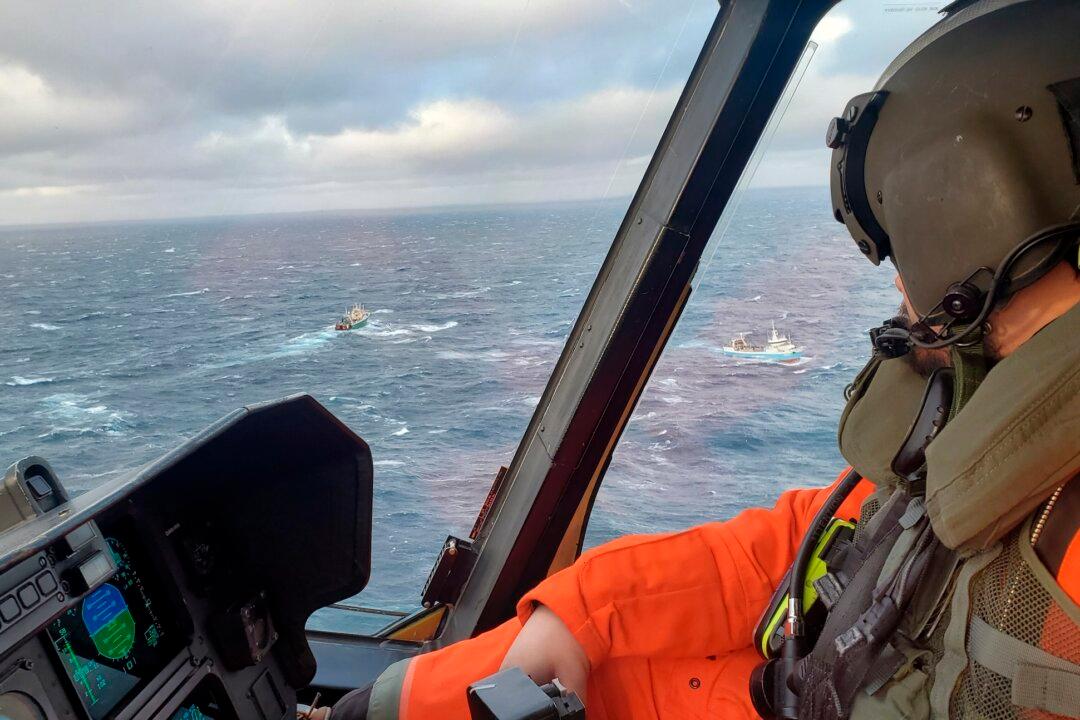BARCELONA, Spain—Canadian rescuers have located more bodies from a Spanish fishing ship that sank in rough seas off Newfoundland, raising the death toll to nine.
A search operation is still looking for the 12 crew members still missing after the ship went down in the eastern Atlantic Ocean. Three members, including the captain, were rescued alive.





